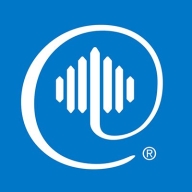
![Cerner Millennium [EOL] Logo](https://images.peerspot.com/image/upload/c_scale,dpr_3.0,f_auto,q_100,w_64/W9sUSQbZMrpdCc14VywpcNpo.jpeg?_a=BACAGSGT)
Aspen Unified PIMS and Cerner Millennium EOL are two competing products in the healthcare information management space. Aspen Unified PIMS is advantageous for its pricing and ease of deployment, while Cerner Millennium EOL stands out with its robust features and comprehensive solutions.
Features: Aspen Unified PIMS provides streamlined management tools, integration capabilities, and data analytics. Cerner Millennium EOL is noted for extensive interoperability, a range of clinical modules, and advanced analytics, offering more comprehensive clinical functionalities.
Ease of Deployment and Customer Service: Aspen Unified PIMS has a quicker deployment model and responsive customer service, facilitating smoother transitions. Cerner Millennium EOL, though requiring more complex deployment, benefits from extensive training and dedicated service teams.
Pricing and ROI: Aspen Unified PIMS offers a cost-effective setup with rapid ROI, making it appealing to budget-conscious buyers. Cerner Millennium EOL involves a higher initial investment, but users often report greater satisfaction with its long-term benefits, justifying the cost.
| Product | Market Share (%) |
|---|---|
| Cerner Millennium [EOL] | 8.1% |
| Aspen Unified PIMS | 8.6% |
| Other | 83.3% |
Aspen Unified PIMS, the industry’s best production planning optimization solution, was recognized for building upon its proven, proprietary optimization engine with powerful new features from Unified like a streamlined interface, improved cloud support, and integration with two other award-winning technologies: AI modeling in Aspen Hybrid Models and dynamic optimization in Aspen GDOT. The solution is widely recognized in industry to help monitor and predict CO2 emissions while balancing overall operational efficiencies.
Cerner Millennium [EOL] was a comprehensive healthcare information system facilitating seamless patient data handling for healthcare providers, aiming to enhance clinical workflows and decision-making.
Sophisticated and robust, Cerner Millennium [EOL] supported healthcare professionals by offering integrated solutions for electronic health records, revenue cycle management, and patient engagement. It provided efficient, scalable functionalities tailored to clinical and administrative tasks, optimizing efficiency and enabling data-driven care delivery.
What are the key features of Cerner Millennium [EOL]?In hospitals and clinics, Cerner Millennium [EOL] was employed to improve collaboration among caregivers and administrative teams, ensure swift data access, and contribute to improved patient outcomes. Specialist centers utilized its robust tools for managing complex cases, adapting features to align with unique clinical practices.
We monitor all Production Planning reviews to prevent fraudulent reviews and keep review quality high. We do not post reviews by company employees or direct competitors. We validate each review for authenticity via cross-reference with LinkedIn, and personal follow-up with the reviewer when necessary.